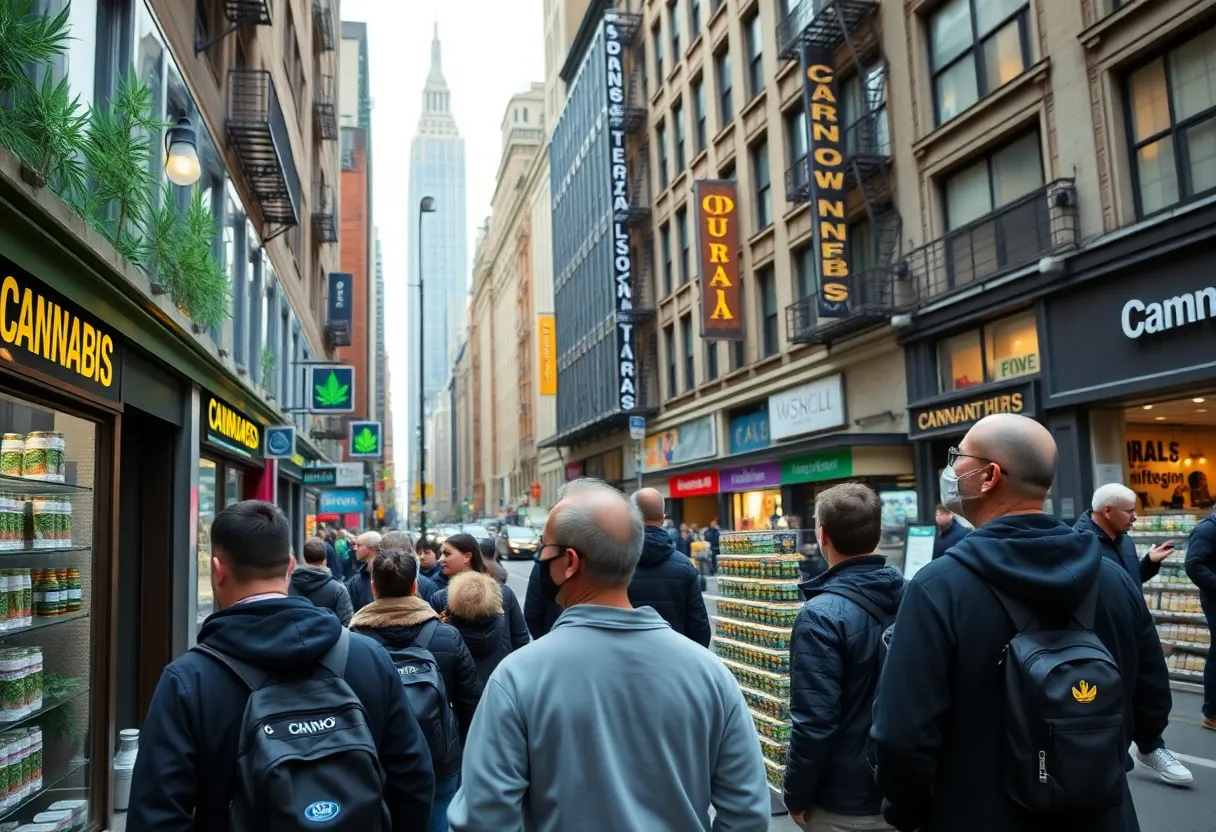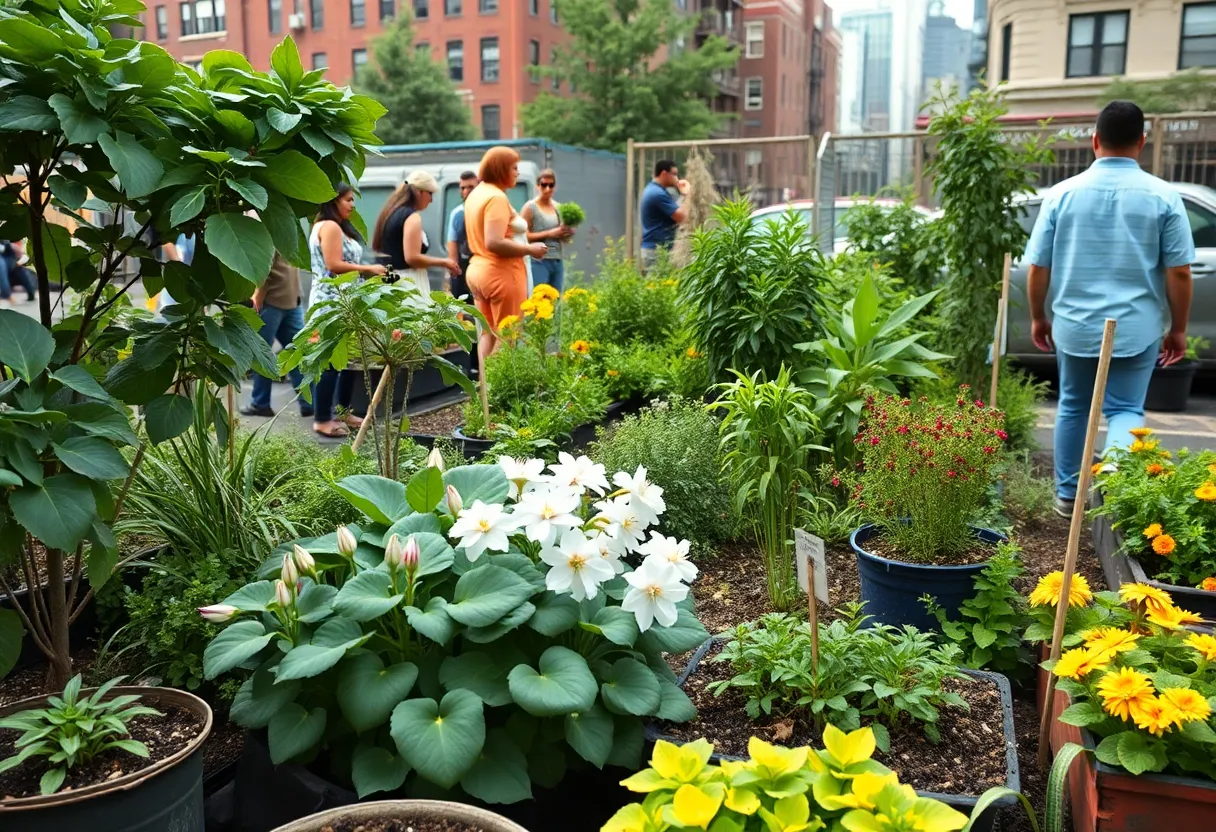News Summary
New York City is grappling with a crisis in its cannabis market as investigations reveal illegal cannabis flower from the West Coast is being sold in licensed dispensaries. Popular brands like Heady Tree and Runtz are implicated in the distribution of these out-of-state products, undermining local businesses and consumer trust. The lack of an efficient tracking system has facilitated this issue, stressing the importance of regulatory enforcement for public health and compliance. Investigations are underway to address the illegal practices impacting the state’s economy.
New York City Encounters Issues with Illegal Cannabis Products
New York City is currently facing a potential crisis in the cannabis market as recent investigations highlight the sale of illegal cannabis flower from the West Coast in licensed dispensaries across the state. This shocking revelation comes courtesy of the New York Medical Cannabis Industry Association, which has been closely monitoring the situation. As it turns out, the beloved products from popular brands like Heady Tree and Runtz are not sourced from local growers, but are instead illegally transported from out-of-state, which is against federal law.
What’s Behind This Confusion?
The core of the issue lies in the current absence of an effective tracking system to monitor cannabis products within New York. With no efficient measure in place, these out-of-state products easily find their way onto store shelves, deceiving consumers and undermining local businesses. Recent lab tests have confirmed that the cannabis flower was not grown in New York, but rather from regions with oversaturated markets like California, Oregon, and Washington.
Eager New York cannabis enthusiasts enjoy the diversity of options available, but it raises alarms for the larger economy. Under existing laws, it is illegal to sell cannabis cultivated outside of New York within its dispensaries. This regulation aims to bolster local agriculture, ensure public health safety, and generate tax revenue that ultimately benefits the state and its citizens. It’s crucial for folks to realize that this situation is not just a regulatory hiccup, but a systemic failure in tracking compliance among cannabis companies.
Understanding the Inversion Issue
The ongoing problem dubbed “inversion” is a trend where cannabis products from heavily supplied markets flood into newer markets like New York, often at cheaper prices. This is making it even tougher for licensed businesses to compete fairly. Unfortunately, the state has been dragging its feet on implementing a comprehensive tracking system known as BioTrack, which has been overdue for over two years now. This delay has only worsened the infiltration of illegal cannabis products.
This failure isn’t just hurting the business; it’s a direct threat to the variety and accessibility of cannabis for medical patients as well. The designated medical cannabis market is struggling to keep pace due to the influx of illegal products that jeopardize patient access to safe and compliant options.
The Impact on Legal Dispensaries
As legal shops continue to grapple with this competition from illicit markets, the repercussions extend beyond just the loss of sales. Each day that the illegal market expands, it forces licensed businesses to push harder for compliance, slowing innovation, and limiting opportunities to diversify their offerings. The ongoing challenges also lead to a significant loss in tax revenue that could be helping New Yorkers.
With the Office of Cannabis Management in the hot seat for not having rolled out BioTrack, there is a growing concern about the broader implications of illegal cannabis on the state’s economy. Not to mention, these unlicensed products are taking up valuable retail space that could be used for compliant, local options.
What’s Being Done?
State regulators have started investigations into various cannabis companies associated with selling marijuana sourced from unauthorized growers, further preventing compliance across the board. Recently, actions have created a bit of a stir, with seizures of illicit products and the closure of several illegal shops within New York. However, many unlicensed locations remain operational, showcasing persistent challenges in enforcement.
With the complexities of legal struggles related to enforcement processes, officials face a rocky road ahead in tackling these illegal operations. This dynamic situation is one to closely observe as it unfolds, revealing the future landscape of cannabis in the Big Apple.
Deeper Dive: News & Info About This Topic
- Business Wire: Illegal Out-of-State Cannabis Products Discovered for Sale in Licensed New York Dispensaries
- The New York Times: New York Weed Investigations
- Politico: New York Rogue Weed Retailers
- Law.com: Federal Court Upholds NYC Closures of Illegal Cannabis Operators
- Wikipedia: Cannabis in New York

Author: STAFF HERE NEW YORK WRITER
The NEW YORK STAFF WRITER represents the experienced team at HERENewYork.com, your go-to source for actionable local news and information in New York, the five boroughs, and beyond. Specializing in "news you can use," we cover essential topics like product reviews for personal and business needs, local business directories, politics, real estate trends, neighborhood insights, and state news affecting the area—with deep expertise drawn from years of dedicated reporting and strong community input, including local press releases and business updates. We deliver top reporting on high-value events such as New York Fashion Week, Macy's Thanksgiving Day Parade, and Tribeca Film Festival. Our coverage extends to key organizations like the Greater New York Chamber of Commerce and United Way of New York, plus leading businesses in finance and media that power the local economy such as JPMorgan Chase, Goldman Sachs, and Bloomberg. As part of the broader HERE network, including HEREBuffalo.com, we provide comprehensive, credible insights into New York's dynamic landscape.





